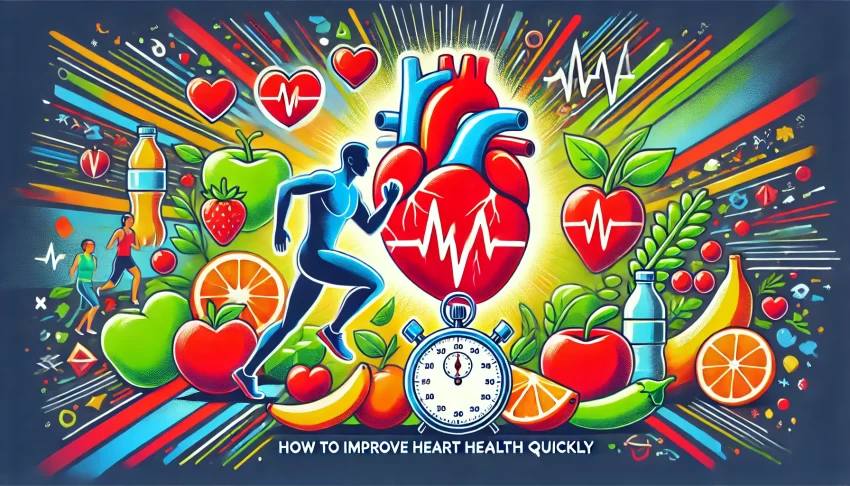Altering how quickly one can improve heart health encompasses adoption of heart-healthy practices and habits that are lifestyle-related. Even though it is true that bettering some habits may take a long time, these practices can be adopted right away and assist with the course of maintaining heart health improvement over time:
Follow A Dietary Approach To Stop Hypertension:
Reduce consumption to local whole foods rich in nutrients such as fruits, vegetables, other fibrous foods such as whole grain, fish and poultry lean meat, peanuts, beans and other legumes.
Minimize consumption of saturated and trans fats, refined carbs as well as processed and installation of excess metallic elements sugars.
In addition to modify the diet one should consume healthy fats such as omega three mostly through oily fish like salmon, mackerel, sardines as well as foxtail millet, chia and walnuts.
Stay Active
Take part regularly in aerobic exercise performing activities like brisk walking, jogging, cycling swimming or dancing a minimum of 150 minutes every week or 30 minutes on most of the days of the week.
Take part in workouts which involves training of muscle group participating at least two days of the week for the purpose of developing body strength and fitness.
Look for ways to do more physical activities in a day such as standing using the stairs, walking during recess, or doing some gardening.
Stress Control by Stress Management
Use techniques that help to calm down, e.g. deep breathing exercises, meditation, yogic exercises, tai chi, or even progressive muscle relaxation.
Engage in activities that are relaxing and enjoyable that include walking out, listening to entertainment and taking part in some recreation.
Stop smoking:
If you smoke, get help and stop smoking today. There is no question that chronic cessation of smoking exerts a cardiovascular benefit and reduces heart disease risk significantly.
Nicotine replacement therapy, pharmacotherapy, behavioral therapy or a combination of any of these could be considered to enhance the chances of quitting successfully.
Maintain a Balanced Weight:
While working towards healthy weight consider proper nutrition and physical activities. Even small amounts of body weight loss have been shown to protect the heart and lessen the incidence of cardiovascular illness.
Try to concentrate more on making irreversible modifications of your way of life instead of diets that work wonders for some time or no effort at all.
Box 3: Blood Pressure and Cholesterol Control
Make it a habit to monitor your blood pressure and cholesterol levels and do all the necessary treatments so that they remain within the recommended levels.
If you are given drugs to manage your blood pressure or cholesterol, ensure you adhere to your doctor’s regimen.
Make Sure That You Sleep Enough:
Sleep is healthy; you should therefore aim at sleeping between 7-9 hours with little or no disturbances each day. The heart is thought to be in distress when there is lack of sufficient sleep extending to increased susceptibility to heart disease.
Limit Alcohol Consumption:
When drinking alcohol, do so in moderation. Recommended levels should not exceed one drink per day for a woman and two per day for a man.
Making these changes and adopting these habits is a way of taking measures that will enhance heart health in a short span of time, as well as reaping the rewards of having a healthier cardiovascular system. Nevertheless, it’s important to seek the advice of a healthcare professional before attempting to make any drastic alterations, more so, if there are pre-existing health issues or worries.
